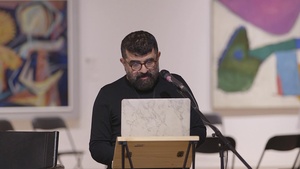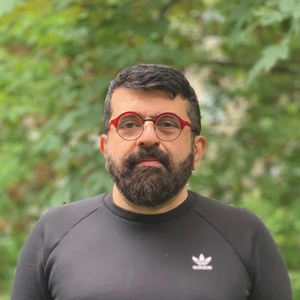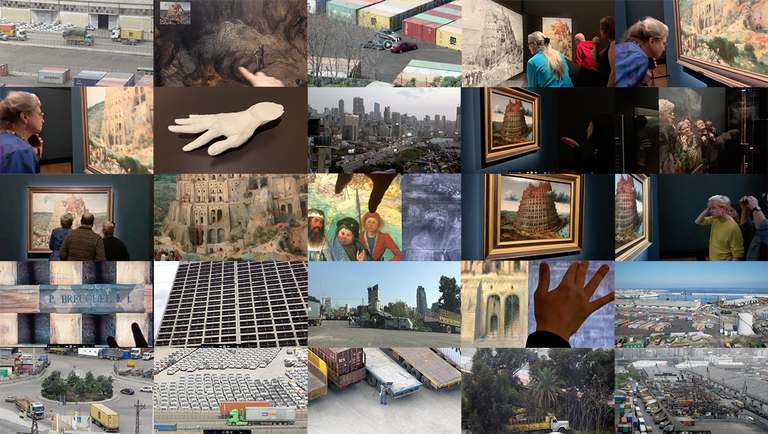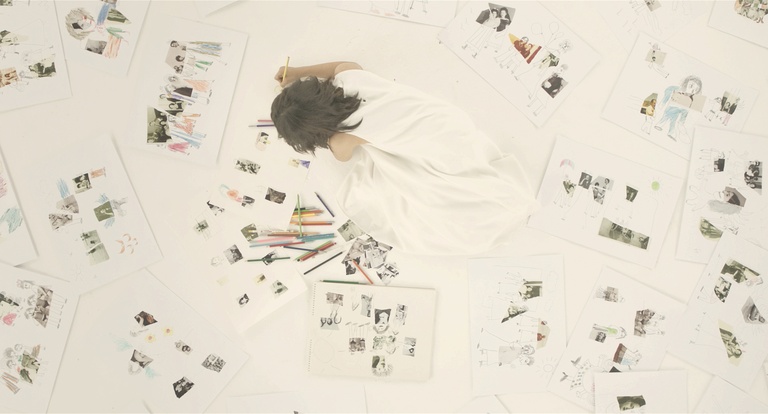This talk introduces the concepts that informed the making of The Burg of Babel, a film installation by artist Mohammad Salemy that explores the entanglements of myth, art, media, time, and memory through a speculative narrative set in the port of Beirut. Framed around the fictional smuggling of Pieter Bruegel’s lost original sketch for his Tower of Babel paintings, the film investigates the relationship between collective intelligence and the limits of its capture by historical, technological, and political systems.
Structured as a 25-channel analog installation arranged in a 5×5 grid, the work spatializes time by compressing the full 25-minute film into a single minute of simultaneous display—each channel offset by one-minute intervals. This compositional strategy becomes a metaphor for how artificial intelligence approaches human time and, by extension, its contemplation of human art forms such as cinema. In contrast, the viewer’s experience of the installation offers an alternative temporal encounter: by navigating the grid with their gaze, viewers effectively rewind, fast-forward, stretch, or fragment time through perceptual movement and attention.
Through this innovative format, Salemy draws connections between the speculative aura of Bruegel’s paintings (as highlighted in the artist’s retrospective at Vienna’s Kunsthistorisches Museum), the tragic events of the 2020 Beirut port explosion, and the mythic failure of Babel as a symbol of fractured human communication. The result is a mosaic of opacity—an oblique archive that resists resolution, offering instead a new cinematic grammar for reflecting on the elusive dynamics of collective thought.
This masterclass will be conducted in English and requires prior registration through a form to secure a seat. Admission is free, but a ticket must be collected in advance.



